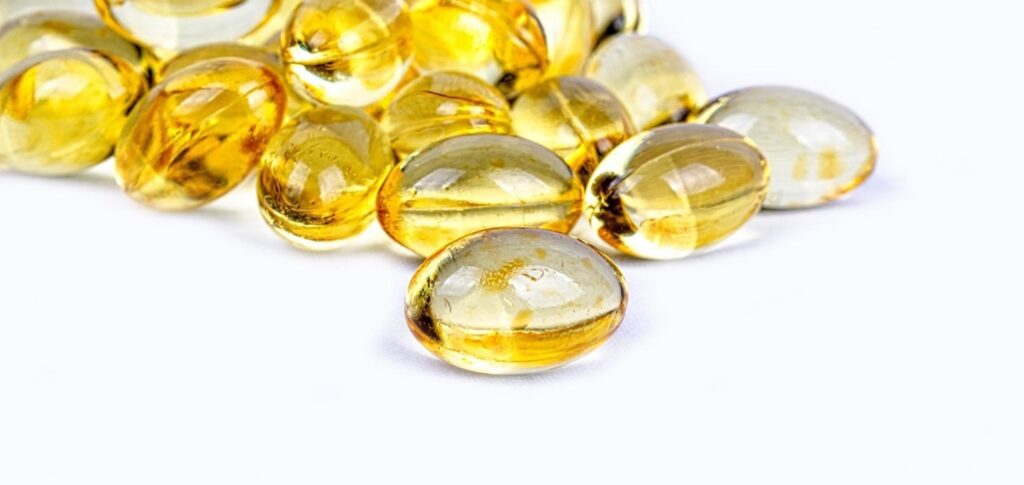If you are looking for the answer to the important question, “When should we take vitamin D pills?” Stay with us until the end of the article. In this article, we will examine the best time to take vitamin D for its greatest effect.
Vitamin D is one of the most important nutrients for body health. Since this vitamin is found in a few foods, it is only possible to absorb it through diet. Vitamin D deficiency is one of the common problems among many people in the world. For this reason, the consumption of vitamin D supplement tablets has increased. However, these supplements should be taken at the right time and in the correct dose for better absorption of vitamin D. In fact, the time of taking vitamin D plays an important role in its better absorption.
Vitamin D deficiency
Vitamin D deficiency means that the body does not have the necessary amount of vitamin D. People with light skin and younger bodies produce vitamin D better than people with dark skin and over fifty years of age.
On the other hand, vitamin D deficiency causes various diseases.
Including:
- Osteoporosis
- Heart disease
- high blood pressure
- diabetes
- Infection and immune system disorder
- Falls in the elderly
- Some types of cancer, such as colon, prostate, and breast cancer
- MS
- depression
- muscle weakness

Vitamin D deficiency in children leads to soft bones, an incorrect growth pattern, muscle weakness, bone pain, and joint deformation.
There are three primary sources for supplying vitamin D to the body:
- Exposure to sunlight for 15 to 20 minutes and three times a week
- Eating foods containing vitamin D
- Taking vitamin D supplements
Why should we take vitamin D supplements?
Vitamin D in the body affects our health in many ways. Strengthening the immune system, strengthening bones, elevating mood, increasing sports endurance, and helping to lose weight are some examples of the most important functions of this vitamin.
Vitamin D is produced as a result of sunlight on the skin of the body. In winter, sunlight is not strong enough to produce vitamin D in the body. Also, many inhabitants of the planet live far from the equator and do not receive enough sunlight.
Besides these, many of us spend all day at home or work, or when we go out, we cover our skin with sunscreen creams. Therefore, vitamin D deficiency seems possible.
Causes of vitamin D deficiency
According to the research, about 45% of people in society are deficient in vitamin D and suffer from vitamin D poverty. The reasons for vitamin D deficiency depend on five main factors, each of which will be explained below.
Sun exposure is one reason for vitamin D deficiency in the body. Studies have shown that 50 to 90% of vitamin D in the body is supplied through sunlight. Therefore, people not exposed to enough sun will seriously threaten the risk of vitamin D deficiency.
Proper diet is one of the severe causes of vitamin D deficiency in the body. We all know that one way to absorb vitamin D is through food consumption, but many foods are not rich sources of vitamin D. Therefore, by consuming foods such as fish, milk, eggs, and cereals for breakfast, you can increase the amount of vitamin D in the body daily.
Skin color is another reason for vitamin D deficiency. People with dark skin color have more melanin. Melanin is a pigment that helps protect the skin from the sun’s ultraviolet rays. Still, it also reduces the skin’s ability to produce vitamin D. It is interesting to know that the effects of melanin are far more severe for people living in cloudy areas than those living in other geographical regions.
Another reason for the body’s lack of vitamin D is age. It may be strange, but the skin’s ability to make vitamin D decreases with age. Also, elderly people are less exposed to sunlight than other people.
Certain medical conditions in some patients are other causes of vitamin D deficiency. Diseases such as celiac disease, cystic fibrosis, Crohn’s, and kidney and liver diseases can make it very difficult to absorb or metabolize vitamin D in the body.
Getting enough vitamin D is necessary to maintain body health and strengthen the immune system. Since this vitamin is found in a few food sources, it will be difficult to meet the body’s needs if you are not regularly exposed to direct sunlight. For this reason, vitamin D supplements are the best and easiest way to supply the vitamins the body needs.

When should we take vitamin D?
If you experience symptoms of vitamin D deficiency, it is best to see a doctor for a blood test to determine your body’s level of vitamin D.
Symptoms of vitamin D deficiency include:
- tiredness
- Skeletal pain
- muscle weakness
- Pain and cramps in the muscles
- Mood changes such as depression
If the doctor diagnoses a vitamin D deficiency through a blood test, he will prescribe a vitamin D3 supplement. The dose your body needs will vary depending on how deficient you are.
Taking vitamin D in the morning
Many people take their vitamin D pills in the morning, but there are no exact scientific reasons for this consumption time. However, many doctors recommend taking this supplement in the morning for more effective absorption. Over time, taking vitamin pills in the morning can become part of people’s morning schedule, making it easier to take them. We suggest you set an alarm on your phone to take vitamin D tablets so you don’t forget to take them.
Does taking vitamin D at night cause insomnia?
Many people believe that taking vitamin D at night causes insomnia. But this way of thinking needs to be corrected. Vitamin D plays an essential role in the production of the hormone melatonin, which, as you know, contributes to the overall quality of people’s sleep.
Taking vitamin D at night may also improve the quality of our sleep. According to research, reducing vitamin D deficiency in the body can reduce the symptoms of sleep disorders. However, a high level of vitamin D in the body may also increase the risk of unhealthy sleep. Taking vitamin D tablets at night does not cause sleep disturbances. However, some people may experience insomnia by taking this supplement at night. So, these people should take this vitamin in the morning.
Should vitamin D be taken with food?
As we know, vitamin D is a fat-soluble supplement; it dissolves in oils or fats. Therefore, taking vitamin D tablets with foods containing healthy fats is recommended. These foods include olive oil, seeds, nuts, fish, and eggs. Unfortunately, no clear answer exists for consuming vitamin D with low-fat or high-fat foods. However, according to an experiment in 2013, taking this supplement with low-fat foods has been associated with more excellent absorption. Taking vitamin D tablets in the main meal can help the body absorb more of this supplement.

Is it possible to get the amount of vitamin D the body needs only through sunlight?
Exposure to sunlight in summer is one of the most effective ways to absorb vitamin D. safely. Still, we should remember that each person’s vitamin D absorption may differ depending on the physical characteristics, geographical conditions, and season. For example, the bodies of older people and people with dark skin produce less vitamin D and need to absorb more of this supplement. Exposure to direct sunlight is not required to produce vitamin D in the body.
On the other hand, it is better to limit exposure to this light to 10 to 15 minutes and place the hands, feet, stomach, and back in front of sunlight. According to research, exposure to sunlight should be done only two to three times a week, and sunscreen should be used. Absorbing the sun can help supply vitamin D; however, excessive exposure to sunlight can be very harmful and cause much damage.
These damages include sunburn, genetic mutation, increased risk of skin cancer, DNA damage, and wrinkles. Do not forget that in addition to absorbing sunlight, it is better to use supplements and foods containing vitamin D to supply the body with vitamin D.
Time to take vitamin D 50000 tablets
Vitamin D is one of the most important body supplements to consume on time. As we know, vitamin D has different dosages that are used differently. Generally, the best time to take this supplement is during the day, but the conditions for taking other vitamin D types may differ slightly. Vitamin D 5000 is one of the standard doses of D supplements that are prescribed for different people. In the following, we will explain how to take vitamin D 5000 for each person with special conditions.
- People with normal vitamin D levels can take vitamin D 5000 pills once a month on the morning of the first or last day of the month. You can also take this supplement in the middle of the month, But it is better to eat it on a specific day every month so that it is not forgotten.
- People with insufficient vitamin D levels can take 5000 tablets every two weeks. However, the best time to take this pill is during the day.
- People with a shallow vitamin D level, shown in the blood test as Deficient, are a sensitive group in society. Their vitamin D levels are so low that it is as if this type of vitamin does not exist in their bodies. People with these conditions often use vitamin D by injection or take vitamin D 5000 tablets weekly. Remember that these people should never forget their vitamin D dose because they have a severe shortage of vitamin D.
Time to take vitamin D 1000 tablets
Many people may believe that the only available vitamin D pills are in the categories of 5000 and 2000. But this supplement also has a dose of 1000 units. One thousand units of vitamin D should be taken daily because this dose provides vitamin D daily in the body. Remember that vitamin D 1000 tablets should be taken first thing in the morning every day.
What should be done to absorb vitamin D tablets better?
Vitamin D is a fat-soluble vitamin. It does not dissolve in water, and when it enters the body with fatty foods, it is better absorbed. For this reason, it is said that it is better to eat it with a fatty meal for better vitamin D absorption.
When discussing a fatty meal, we don’t mean to fill your food with oil! Avocados, nuts, seeds, olive oil, full-fat dairy products, and eggs are foods rich in natural fats that help better absorb vitamin D. So; it can be said in summary that the best time to take vitamin D is during a meal (preferably a main and high-fat meal) and these foods can help a lot in better absorption of vitamin D pills.
When the skin is exposed to sunlight, vitamin D is produced through cholesterol. Sunlight targets the cholesterol in skin cells and creates the necessary energy to produce vitamin D.
Vitamin D plays an important role in body health. For example, it helps form intestine cells that absorb phosphorus and calcium. Phosphorus and calcium are two essential minerals that strengthen bones in the human body.
It should be noted that the rays emitted from glass do not absorb vitamin D production. For this reason, even people who work in bright environments with windows are at risk of vitamin D deficiency.

What time should we take vitamin D tablets?
Do you have a question about when to take vitamin D pills? Some people prefer to take this supplement in the morning. Of course, it may be easier to remember to take the supplement in the morning before doing anything. But on the other hand, some research has shown that vitamin D can help increase sleep quality.
In fact, according to these studies, the lower the vitamin D level in the blood, the higher the probability of sleep disorders. Therefore, the time spent eating vitamin D can affect sleep quality.
Experts in this field continue to research the effect of vitamin D on sleep quality. Trial and error is the best way to find the best time to take vitamin D. Try different times of the day to see what time works best for you.
How many times a day should we take vitamin D tablets?
Vitamin D is essential for the body’s health and helps produce calcium and bone formation. Taking too much vitamin D can harm the body. The more vitamin D you eat, the better.
High consumption of vitamin D can cause drug poisoning and excessive calcium increase in the blood and its deposition in soft tissues and blood vessels. Also, in women, it can increase the possibility of painful kidney stones.
The symptoms of high levels of vitamin D in the blood are:
- nausea
- Frequent urination and excessive thirst
- Appetite blindness
- constipation
- weakness
- confusion
- Muscle incoordination and stuttering
Prevent vitamin D deficiency.
The treatment of vitamin D deficiency and the prevention of vitamin D deficiency are done similarly. Both aim to bring the body’s vitamin D level to a certain level. If the nutritionist determines that you need to take a supplement to treat the deficiency of this vitamin, he will guide you.
In addition to supplements, follow the following to avoid vitamin D deficiency:
Eat foods containing vitamin D.
- Eat foods containing vitamin D to reduce the risk of vitamin D deficiency. Food alone cannot supply the amount of vitamin D the human body needs.
What should we eat for vitamin D deficiency?
- Fish liver oil
- Salmon fish
- Tuna
- Orange juice enriched with vitamin D
- Milk enriched with vitamin D
- Yogurt enriched with vitamin D
- Canned sardines
- Beef and liver
- Yolk
- fortified cereals
